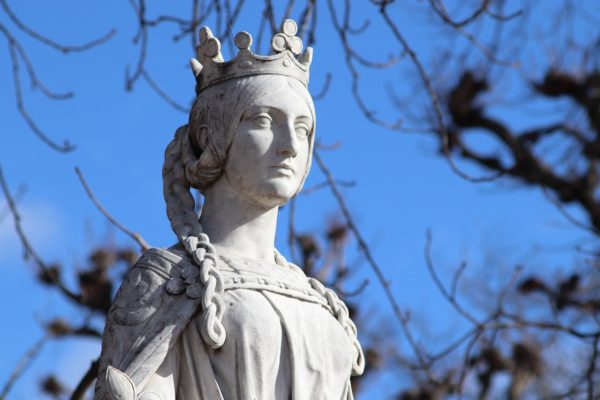Our women’s group in Yeruham, Israel, started reading the Megillah1 in 1983. When Purim of the year 2000 was approaching, one of us, Danielle Bernstein, suggested an innovation: traditionally, four of the verses are read aloud by the whole congregation before the reader repeats them, for extra emphasis, and three of those are about Mordecai—why not balance this custom with reading aloud some Esther verses as well? Danielle’s idea prompted me to look carefully at the verses chosen for Mordecai, and complement them with parallel motifs in those I selected for Esther. So here is the list we read aloud ever since (in the JPS English translation)—it shapes a literary structure of four stages:
Stage One: Meet The Protagonists, Ancestry Included
“In the fortress Shushan lived a Jew by the name of Mordecai, son of Jair son of Shinei son of Kish, a Benjaminite.” (Esther 2:5)
“He was foster father to Hadassah—that is, Esther—his uncle’s daughter, for she had neither father nor mother. The maiden was shapely and beautiful; and when her father and her mother died, Mordecai adopted her as his own daughter.” (Esther 2:7)
Stage Two: Regal Clothes Symbolize, According To The Talmudic Sages, The Holy Spirit That Makes The Protagonists National Saviors
“On the third day, Esther put on royal apparel and stood in the inner court of the king’s palace, facing the king’s palace, while the king was sitting on his royal throne in the throne room facing the entrance of the palace.” (Esther 5:1)
“Mordecai left the king’s presence in royal robes of blue and white, with a magnificent crown of gold and a mantle of fine linen and purple wool. And the city of Shushan rang with joyous cries.” (Esther 8:15)
Stage Three: National Salvation
“The Jews enjoyed light and gladness, happiness and honor.” (Esther 8:16)
Stage Four: Leadership – Esther’s Carries Into Judaism Forever After, While Mordecai’s Is Worldly And Lasts Only One Lifetime.
“And Esther’s ordinance validating these observances of Purim was recorded in a scroll.” (Esther 9:32)
“For Mordecai the Jew ranked next to King Ahasuerus and was highly regarded by the Jews and popular with the multitude of his brethren; he sought the good of his people and interceded for the welfare of all his kindred.” (Esther 10:3)










